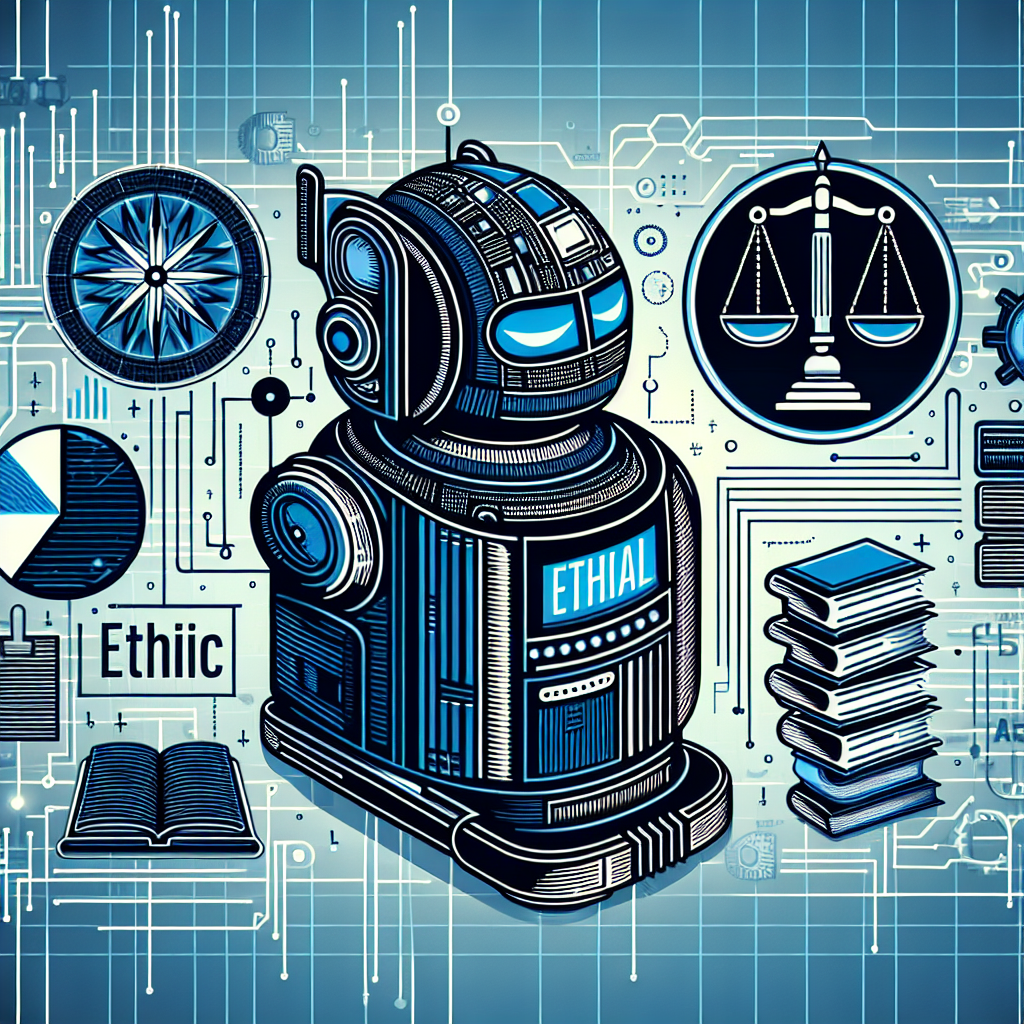Artificial intelligence (AI) is rapidly transforming various industries, including the legal sector. AI-powered legal advice can provide quick, accurate, and cost-effective solutions to legal issues. However, the use of AI in the legal field raises important ethical considerations that must be addressed to ensure that the technology is used responsibly and ethically.
One of the key ethical considerations for AI-powered legal advice is the potential for bias in the algorithms used to generate legal advice. AI systems are trained on data sets that may contain biases, such as historical data that reflects societal biases or systemic discrimination. If these biases are not addressed, AI-powered legal advice could perpetuate inequalities and injustices in the legal system.
To address this issue, developers of AI-powered legal advice systems must carefully monitor and evaluate the data sets used to train their algorithms. They should also implement mechanisms to detect and mitigate biases in the algorithms, such as bias detection tools and regular audits of the system’s performance. Additionally, developers should consider incorporating diverse perspectives and expertise into the development process to ensure that the AI system is fair and unbiased.
Another ethical consideration for AI-powered legal advice is the potential impact on the legal profession. Some critics argue that AI could replace human lawyers, leading to job losses and a dehumanization of the legal process. However, proponents of AI-powered legal advice argue that the technology can complement human lawyers by automating repetitive tasks and providing valuable insights that can enhance the quality of legal services.
To address concerns about the impact of AI on the legal profession, it is important for stakeholders to engage in discussions about the ethical implications of AI in the legal sector. This includes considering the potential consequences of widespread adoption of AI-powered legal advice on access to justice, the role of lawyers, and the overall functioning of the legal system. By engaging in open and transparent dialogue, stakeholders can work together to develop ethical guidelines and best practices for the responsible use of AI in the legal field.
In addition to bias and the impact on the legal profession, there are other ethical considerations for AI-powered legal advice that must be taken into account. These include issues related to privacy and data security, transparency and accountability, and the need for human oversight of AI systems. Stakeholders must work together to address these ethical considerations and ensure that AI-powered legal advice is used in a responsible and ethical manner.
In conclusion, AI-powered legal advice has the potential to revolutionize the legal sector by providing quick, accurate, and cost-effective solutions to legal issues. However, the use of AI in the legal field raises important ethical considerations that must be addressed to ensure that the technology is used responsibly and ethically. By addressing issues such as bias, the impact on the legal profession, privacy and data security, transparency and accountability, and human oversight, stakeholders can ensure that AI-powered legal advice benefits society while upholding ethical standards.
FAQs:
Q: How can bias in AI-powered legal advice be addressed?
A: Bias in AI-powered legal advice can be addressed by carefully monitoring and evaluating the data sets used to train algorithms, implementing bias detection tools and regular audits, and incorporating diverse perspectives and expertise into the development process.
Q: What are the potential consequences of widespread adoption of AI-powered legal advice on the legal profession?
A: The potential consequences of widespread adoption of AI-powered legal advice on the legal profession include job losses, changes in the role of lawyers, and the dehumanization of the legal process. However, proponents argue that AI can complement human lawyers and enhance the quality of legal services.
Q: How can stakeholders address ethical considerations for AI-powered legal advice?
A: Stakeholders can address ethical considerations for AI-powered legal advice by engaging in discussions about the ethical implications of AI in the legal sector, developing ethical guidelines and best practices, and working together to ensure that AI is used in a responsible and ethical manner.

